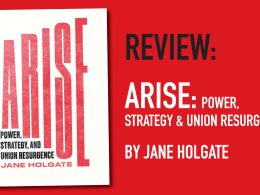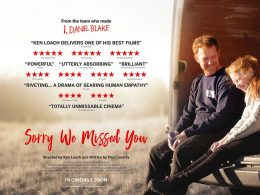By Carla Grainger
In her latest release, ‘Euro-Country’, Meath-born singer-songwriter CMAT has delivered not just a pop song, but a fierce act of cultural resistance. Beneath its shimmering hooks lies a searing indictment of capitalism’s false promises and Ireland’s recurring betrayal of its working class. With the deftness of a poet and the fury of a revolutionary, CMAT transforms personal memory into collective struggle, reviving wounds nearly two decades old while illuminating their uncanny relevance today.
The song draws you in with its striking first verse, featuring CMAT’s angelic and ethereal voice singing in Irish, a deliberate reaching back to pre-colonial roots. This section stirred up controversy recently when it was cut from the song by the BBC under the guise of it being a “radio edit”. This decision was strongly criticised as it echoed the broadcaster’s problematic history of ignoring Irish identity, particularly with the media storm already swirling around their treatment of Irish rap group Kneecap. Before even getting into the main plot of the song, CMAT reclaims cultural territory by refusing to submit to such sanitisation – a revolutionary act in and of itself.
Legacy of the Celtic Tiger
What follows is a vivid world-building of 1990s-2000s Ireland, when the Celtic Tiger dangled visions of prosperity before a hopeful youth. CMAT captures the intoxicating glamour – foreign holidays, sleek cars, and sparkling shopping centres all gleaming with the promise of a new age – only to be wrenched into the crushing reality of the 2008 crash. With each verse, she pulls the listener deeper into a betrayal that was not only avoidable but man-made, a fall from promised abundance into austerity and misery.
The bridge of ‘Euro-Country’ is where CMAT bares her teeth, and the mask of her pop persona shatters. Here, her rage erupts against the political architects of the crisis, with Bertie Ahern named explicitly as the villain who filled his pockets while the working class bore the destruction. In a line that has already sent shivers through listeners across Ireland, she recalls: “I was twelve when the Das started killing themselves all around me.”
CMAT hits us in the gut with her very direct recounting of the suicides of fathers who, faced with impossible debts, saw life insurance as their families’ last lifeline. Her blunt delivery is brutal but necessary, a stark difference from Ireland’s usual strategy of sweeping the uncomfortable under the rug. This is not just lyricism; it is testimony.
Rage that can be danced to
The brilliance of CMAT lies in her ability to package such devastation into a pop song, ensuring the message travels far beyond the already converted. Her melodies are catchy enough for radio, her image is light-hearted and fun, her choruses infectious, but harboured not far under the surface is a raw critique of the Irish ruling class and the capitalist mirage they sold. She proves that protest songs are not just folk culture; rage can also be danced to.
Although this song is about the past, it pointedly holds up a mirror to today. As Ireland faces rising costs, a housing crisis, and the venom of anti-immigrant scapegoating, CMAT’s song feels less like a history lesson and more like news coverage from the present. The Government’s old tactics – blaming the young, deflecting outrage, urging emigration – re-emerge, but CMAT’s music refuses to let the famous Irish rug curve over the ruins any longer.
She closes the song with a rallying cry: “But I know it can be better if we hound it.” Here lies the main takeaway: the insistence that collective action can remake the world, that the working class holds the power to overturn despair. ‘Euro-Country’ is a call to arms disguised as a pop anthem, reminding us that the anger of 2008 still burns, and that change is only possible when we make it.
Ireland, the rug is indeed lumpy. CMAT has lifted it; now it’s up to us to clear what festers beneath.












